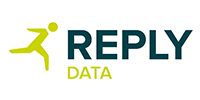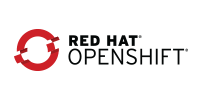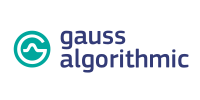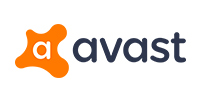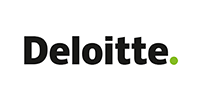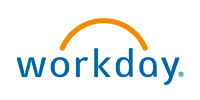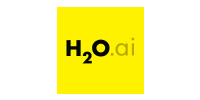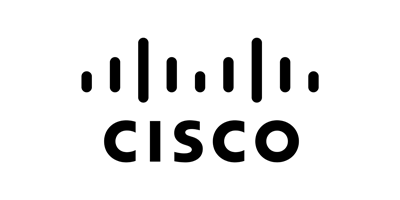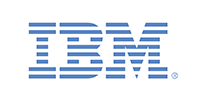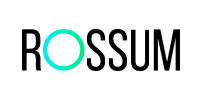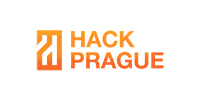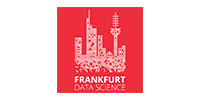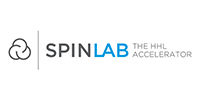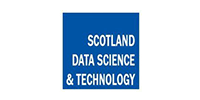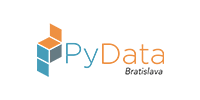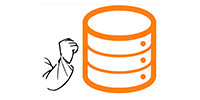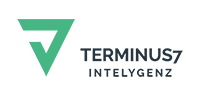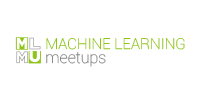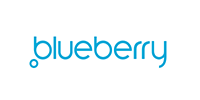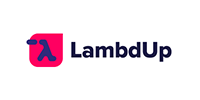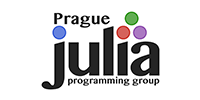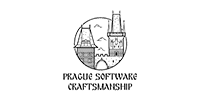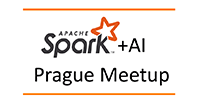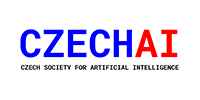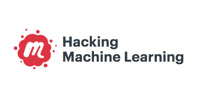Practical conference about ML, AI and Deep Learning applications
Machine Learning Prague 2019
– , 2019
They’re among us We are in The ML Revolution age
Machines can learn. Incredibly fast. Faster than you. They are getting smarter and smarter every single day, changing the world we’re living in, our business and our life. The artificial intelligence revolution is here. Come, learn and make this threat your biggest advantage.
- 1 000+ Attendees
- 3 Days
- 45 Speakers
- 8 Workshops
- 2 Parties
Phenomenal Speakers
Practical & Inspiring Program
Friday,
Workshops
at CEVRO Institut, Jungmannova 28/17, Prague 1
Registration –
| Room 103 | Room 106 | Room 203 | Room 205 | Room 206 | |
|---|---|---|---|---|---|
|
–
coffee break – |
Machine Learning in the real-world: why you need a platform to run Machine Learning at scale (1/2) (sold out)
Greg Antell, BigML When data-driven organizations start using Machine Learning at scale (i.e. automatically creating and operating machine-learned models for dozens of different use cases) they soon realize how important it is to leverage a robustly-engineered platform that removes the complexities of Machine Learning and allows different stakeholders to focus on what matters most; enhancing and automating decision making. In this workshop we will give you an extensive overview of the BigML platform and discuss the design principles that have been followed to remove the extra complexities that developing end-to-end Machine Learning applications typically implies while ensuring traceability reproducibility and many other features that mitigate the risks of operating hundreds thousands or even millions of machine-learned models in the real world. |
Quantum Enhanced Optimization and Machine Learning (1/2) (sold out)
Jacob Biamonte, Skolkovo Institute of Science and Technology This course introduces contemporary methods to utilize quantum processors to accelerate computational subtasks. No background in quantum mechanics is assumed. As part of a unified quantum programming framework we will introduce the core building blocks needed to program two types of quantum devices. (Type I) Quantum enhanced annealers; (Type II) gate-model based devices. We will compare and contrast the use of quantum annealers and gate-model based devices to (i) solve optimization problem instances; (ii) train binary classifiers. Course notes problem sets with solutions as well as compete programming examples will be provided. |
Development of AI sound analysis method for automotive aftersales care (sold out)
Jiří Dobeš, GoodAI Applied Follow our journey from a good accuracy ML method to a very fine-tuned product with hands-on workshop. |
Deep Learning for Text Processing (sold out)
Petr Baudiš, Rossum Join us for our workshop and get hands-on experience with Neural Network models used in Natural Language Processing (NLP). We will introduce you to the most common Neural Nets and techniques used in NLP (bag-of-words embeddings CNNs RNNs and autoencoders). Aside of basic text classification (similar to last year workshop) we will also talk about measuring text similarity as another task. We will be playing with some of the most popular tools like Keras and Tensorflow. |
Machine Learning on the EDGE (sold out)
Jan Pospíšil, Microsoft Come to see how you can deploy and host ML model(s) on edge Raspberry Pi like devices. I will walk you thru full end-to-end deployment process using Azure IoT infrastructure. To “save” some time we will be using ML models from Custom Vision yet this scenario is definitely not restricted to those models only. Workshop Environment: Visual Studio Code https://code.visualstudio.com/ Edge device (Raspberry Pi) or Linux virtual machine (Can be provisioned locally or on Azure as same as on any public cloud). Raspberry Pi should be running Raspbian https://www.raspberrypi.org/downloads/raspbian/ (Lite version recommended) VM should be running Ubuntu (16.04 or 18.04) https://www.ubuntu.com/#download Ideally have Azure environment (Free version is more than OK) https://azure.microsoft.com/en-us/https://www.raspberrypi.org/downloads/raspbian/ (Lite version recommended) VM should be running Ubuntu (16.04 or 18.04) https://www.ubuntu.com/#download Ideally have Azure environment (Free version is more than OK) https://azure.microsoft.com |
| – |
|
||||
|
–
coffee break – |
Machine Learning in the real-world: why you need a platform to run Machine Learning at scale (2/2) (sold out)
Greg Antell, BigML When data-driven organizations start using Machine Learning at scale (i.e. automatically creating and operating machine-learned models for dozens of different use cases) they soon realize how important it is to leverage a robustly-engineered platform that removes the complexities of Machine Learning and allows different stakeholders to focus on what matters most; enhancing and automating decision making. In this workshop we will give you an extensive overview of the BigML platform and discuss the design principles that have been followed to remove the extra complexities that developing end-to-end Machine Learning applications typically implies while ensuring traceability reproducibility and many other features that mitigate the risks of operating hundreds thousands or even millions of machine-learned models in the real world. |
Quantum Enhanced Optimization and Machine Learning (2/2) (sold out)
Jacob Biamonte, Skolkovo Institute of Science and Technology This course introduces contemporary methods to utilize quantum processors to accelerate computational subtasks. No background in quantum mechanics is assumed. As part of a unified quantum programming framework we will introduce the core building blocks needed to program two types of quantum devices. (Type I) Quantum enhanced annealers; (Type II) gate-model based devices. We will compare and contrast the use of quantum annealers and gate-model based devices to (i) solve optimization problem instances; (ii) train binary classifiers. Course notes problem sets with solutions as well as compete programming examples will be provided. |
Distributed Learning and You (sold out)
Ruksi Laine, Valohai We'll use common distributed learning libraries to speed up a machine learning training examples focusing on data parallelism and scalability of the training. After the workshop you will have the knowledge of why and how distributed learning can be used. Requirements: Laptop with Docker installed a dash of software development expertise and an open mind. |
Analyzing social media data with Apache Spark using Python (sold out)
David Vrba, Socialbakers Apache Spark is popular computational engine used for big data processing machine learning and streaming. In this workshop we will take a deeper look how Spark can be used for analyzing social media data and building machine learning models. First we will spend some time with the DataFrame API and use it to answer some analytical questions about the data. Then we will explore and run some graph processing algorithms using Spark library GraphFrames that is built on top of DataFrames. In the next part we will focus on ML Pipelines - Spark native library for machine learning we will explore it's basic concepts such as Transformer Estimator and Pipeline and use it to build some ML models on the data. |
Artificial intelligence and ethics (sold out)
Ondřej Veselý, Kiwi.com In the practical part of the workshop we'll learn how EU currently evaluates the ethical dimension of ML related R&D projects and how European AI Alliance prepares the roots for eventual AI regulations. In the light of medialised ML related ethical cases we'll discuss how it relates to our job and how we can avoid unethical decisions. Following part focuses on the ethics itself from different philosophical-sociological aspects. We'll identify and go through four basic narratives of AI discourse: scientific religious securitization and artistic. |
| from |
Party La Loca Music Bar, Odborů 278/4, Prague 2 |
||||
Saturday,
Workshops
Rudolfinum, Alšovo nábřeží 12, Prague 1
Registration –
Welcome to ML Prague 2019

Why inverse reinforcement learning is impossible, and why we can do it anyway
Stuart Armstrong, Future of Humanity Institute
Data-driven System health determination in Monitoring Softwares for Operational Intelligence
Vítězslav Vít Vlček, Broadcom
Topological Approaches for Unsupervised Learning
Leland McInnes, Tutte Institute for Mathematics and ComputingPOSTER SESSION & LUNCH

Parameter Servers Suck, All Hail Horovod
Ruksi Laine, Valohai
Spot the villain – The Merlon Identity Index
Dušan Fedorčák, CEAi
Machine learning: Explainablity with anti-models
Srivatsan Santhanam, SAPCOFFEE BREAK

Solving the Text Labeling challenge with EnsembleLDA and Active Learning
Alexander Loosley, Data Reply
The Labels are Out There
Lotem Peled, NLP Lecturer
Automated Dropbox files naming with image recognition
Vasily Korf, DataloreCOFFEE BREAK

Deep Neural Networks for Optical, Multispectral and Radar Satellite Imagery. Can GANs help us?
Jan Zikeš, SpaceKnow
Vehicles detection in aerial images leveraging advanced image preprocessing
Ondřej Székely, IBMParty
Techtle Mechtle, Vinohradská 47, Prague 2 Sunday,
Conference day 1
Rudolfinum, Alšovo nábřeží 12, Prague 1
Doors open at

Solving the 3 main theoretical puzzles of Deep Learning
Tomaso Poggio, MIT
How to win Kaggle competition and get familiar with machine learning?
Marcin Szeliga, MS ConsultingCOFFEE BREAK

AutoML in Predictive Modeling
Pavel Kordik, RECOMBEE
Machine Learning for recommender systems
Marc Romeyn, Spotify
Spelling Correction for Web Search
Vladimír Kadlec, Seznam.czPOSTER SESSION & LUNCH

ML powered Crime Detection
Kateřina Veselovská, Deloitte Central Europe
Predicting the Global Economy with Automated Machine Learning for Dynamic Systems
Maksim Sipos, CAUSALENS
Artistic applications of artificial intelligence
Luba Elliott,COFFEE BREAK
Panel Discussion
Tomaso Poggio, MITSrivatsan Santhanam, SAP
Stuart Armstrong, Future of Humanity Institute
Lotem Peled, NLP Lecturer
Closing Remarks
Have a great time Prague, the city that never sleeps
A unique capital where you can breathe centuries of history at every corner. We’ll take a tour to explore the sights, invite you to taste the best pivos (that’s beer in Czech) and bring you back to the present by clubbing with you the whole night!


Impressive Venue
Now the seat of the Czech Philharmonic, the Rudolfinum is a Neo-renaissance building associated with music and art since 1885 and only used for truly outstanding purposes. The comfort, acoustics, and design makes it the greatest venue in the whole of Europe and it’s available for us.
Conference Hall
Rudolfinum
Alšovo nábřeží 12, Prague 1
Workshops
CEVRO Institut
Jungmannova 28/17, Prague 1
Now or never Tickets
Subscribe to our newsletter and we’ll let you know when tickets go on sale.
Early Bird
Sold Out
-
Conference days € 200
-
Only workshops (sold out) € 150
-
Conference + workshops (sold out) € 330
Standard Ticket
Sold Out
-
Conference days € 240
-
Only workshops (sold out) € 170
-
Conference + workshops (sold out) € 390
Late Ticket
Sold out
-
Conference days € 280
-
Only workshops (sold out) € 195
-
Conference + workshops (sold out) € 450
What You Get
- Practical and advanced level talks led by top experts
- 2 parties in the city with people from around the world. Let’s go wild!
- Traditional Czech food throughout the conference
We Know That A Little Party Never Killed Anybody
Friday party 19:00
La Loca Music Bar
Odborů 278/4, Prague 2
Saturday party 19:00
Techtle Mechtle
Vinohradská 47, Prague 2
Our Attendees What they say about ML Prague
Thank you to Our Partners
Platinum Partner
Gold Partners
Silver Partners
Party Partner
Further Support
Happy to help Contact
If you have any questions about Machine Learning Prague, please e-mail us at
info@mlprague.com
Organizers

Šárka Štrossová
sarka@mlprague.com

Jiří Materna
jiri@mlprague.com


































